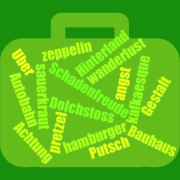Are you getting your message across? Why cultural awareness is more important than you think
How are your language skills? Do you have a team of bilingual or multilingual employees to represent you when it comes to communicating with clients and new contacts overseas?
It’s easy to believe that in a modern economy everyone will speak English, but that isn’t necessarily the case. New and emerging markets across the globe may take the view that they should be able to communicate in their own language.
In any case, the survival of your business may depend on more than simple translation in the long term. The UK’s post-Brexit future, integrating with significant markets in China and beyond, will bring new challenges to the export potential of any business.
Lost in translation
Have you ever used an internet translation site? If you have, you’ll know that they’re pretty blunt instruments on the whole. You might be able to get a sense of what the words mean but it will be without linguistic enhancements, such as accurate grammar, which are essential for comprehension.
A person with a working knowledge of the language will be able to give you a version that is more pleasing to the ear. They’ll also be able to work with the subtleties associated with accurate pronunciation. There are many languages, German included, where proper pronunciation and meaning go hand in hand.
More than that, there are cultural sensitivities which are more difficult to pick up.
Making the most of multiculturalism
One of the benefits of living in a multicultural society is the opportunity to increase our awareness of other cultures. Learning another language in a classroom is all well and good, but we need to go further. Without spending time with people from other backgrounds we may not acquire the knowledge which will help us to forge trade links with other countries.
We are curious to see what a post-Brexit education system will look like in terms of foreign exchange. I imagine that the twinning committees who arrange week-long exchange trips with schools on the continent will carry on as before. But how will things pan out at university level? The Erasmus programme provides students from EU member states with the opportunity to live and study in another country. It is treated not just as an opportunity to study and develop language skills but also to immerse oneself in another country’s culture.
These opportunities enable students to develop their awareness of cultural norms which are likely to be very useful when it comes to building business relationships in the future.
Can we be subtle?
Good translation isn’t just about language. It’s also about understanding what’s really being said. Have you ever used what you’d consider to be a standard phrase when speaking to someone from another country and been met with a confused expression? Imagine that over a negotiating table. Even some Americans struggle to understand why the British call everyone ‘mate’. They refer to universities as colleges and would find it positively rude if you asked for the toilet, restrooms being their standard term.
Understanding cultural differences can also be crucial when negotiating over a long period of time. There is a hierarchy in place within some business cultures which can slow down their response times. If you’re looking to trade with anyone in the Far East your new deal could depend on respect for those boundaries.
If your business is going to thrive in a post-Brexit economy, start looking for the right language experts now. Having the resources to engage with other cultures could be vital for your future.
Blog post based on text provided by Kirsty France



